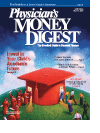Technique Matters in a Fund Manager
In the 1970s, the late New YorkYankee catcher Thurman Munsonwas an All-Star at his position.But despite his accomplishments,he was often criticized for histechnique. His throwing motion andfootwork were unorthodox, criticswould say. Munson's response was,"Judge me by my accomplishments,not by my means."
New York
Times
In many respects, that has beenthe way our mutual fund rating systemhas worked. A fund is judged byits performance. But a trio of businessprofessors—Lubos Pastor of theUniversity of Chicago and RandolphCohen and Joshua Coval of HarvardUniversity—suggests that focusing ona fund's track record alone can bemisleading. According to a report, they've developed anevaluation approach in which a fundmanager's skill is judged by how theirinvestment decisions resemble thedecisions of managers with distinguishedperformance records. Inother words, technique does matter.
TECHNIQUE IN ACTION
As an illustration, the professorspoint to a group of basketball players,some of whom shoot with 2 handsand some with 1 hand. History showsthat 2-handed shooters average 8 basketsout of every 10 shots, while 1-handed shooters only make 4 baskets.Suppose you're watching 2 playerscompete; they've each taken 5 shotsthus far and made 4 baskets. Eventhough their scores are identical, 1 ofthe players shoots with 1 hand, theother with 2. If you were to wagerwhich player would do better on theirnext 5 shots, the 2-handed shooterwould be the better bet, because dataindicate that shooting 1-handed appearsto be an inferior technique.
The professors note that, similarto basketball players, active mutualfund managers rely on a variety oftechniques when trying to beat theirbenchmarks. Many of these techniquesare common to groups ofmanagers. For example, managerscollect information from differentsources and use different valuationmethods, but there are clusters ofmanagers who use similar sourcesand similar methods. Those managersemploying similar techniques,the professors say, are likely to makesimilar investment decisions andtherefore have similar performance.
Equating the basketball analogy toinvesting, consider 2 managers withequally impressive past returns. Onemanager currently keeps a largechunk of their portfolio in the stock ofIntel while the other holds mostlyMicrosoft. Suppose that Intel is currentlyheld by managers with goodpast performance, whereas Microsoftis not. It's reasonable to assume, theprofessors say, that the manager'sdecision to hold Intel is shared by ahigher-caliber set of managers, withsuperior ability to select stocks, whilethe second manager, whose techniquescoincide with those of subparmanagers, has only been fortunate.
SUPPORT FOR THE SYSTEM
To prove their theory, the professorsconstructed a new rating systemwhere a fund's score is based on thetrack records of all other funds thathold any of the same stocks. They saythat in tests based on historical data,funds rated most highly by this systemoutperformed the market, whilethose rated lowest underperformed.
Times
According to the article, theprofessors say the new system is superiorin 2 respects. The first is thatthere is a higher degree of statisticalconfidence in its conclusions. Forexample, funds that have beenaround for less than 5 years nowmake up 55% of all US diversifiedand sector equity funds, according toLipper, Inc. But the professors statethat focusing on track records alonefor these funds would be misleadingbecause there is not enough historicaldata to be confident that the winningmanagers have genuine ability. Theprofessors note that confidence levelsincrease as data become available.
The second advantage the professorspoint to is that the new systembetter identifies funds that will outperformthe market. Their researchshows that if this new mutual fundrating system had been in use fromApril 1977 through December 2000,investors who employed it wouldhave made as much as 1% more eachyear than if they relied on systemsthat looked at track records alone.
The downside is that the mathematicsand data needed to replicatethe professors' new system are complex,and the system has not yet beenadopted by a major fund-rating service.Still, it provides good food forthought. A fund's future success maynot depend solely on its recent trackrecord.
